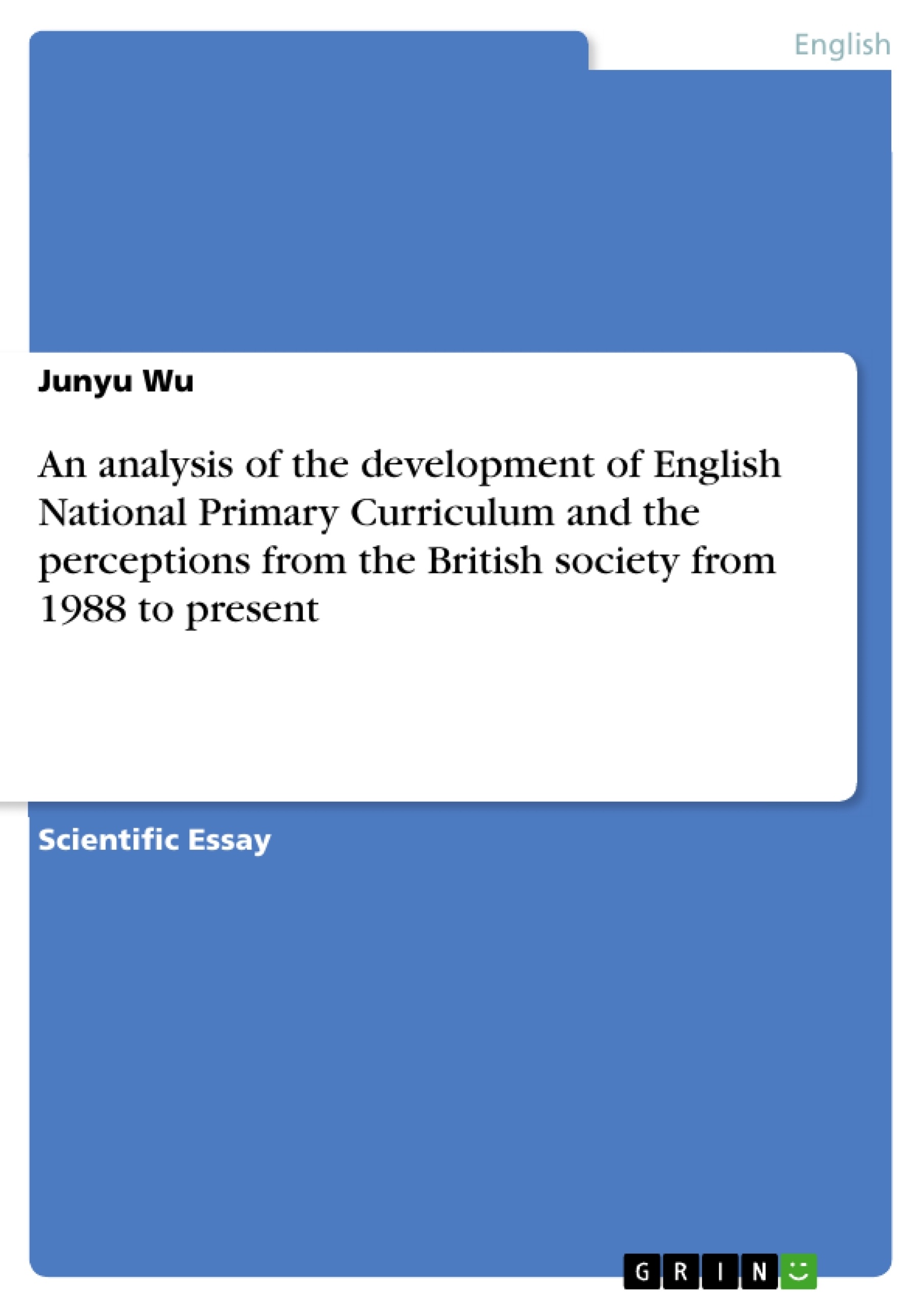From the early 1990s, the poor quality of pupils’ primary education drew a lot of attention from the government and the general public. According to some official statistics from Ofsted (the Office for Standards in Education, as cited in Oakland, 2006), in 2005 more than half of primary students lacked some basic and fundamental skills such as reading, writing and arithmetic after leaving state primary schools. More recently, it aroused a controversial debate among the sociologists towards the issue that limited working conditions, underpaid staff and restricted syllabus in some elementary schools can also lead to low degree standards of primary education (Oakland, 2006). In this case, the British government had to re-specify the National Primary Curriculum (NPC) as efficiently as possible to enhance the pupils’ quality of education as a whole to resolve the problem of low standards of literacy and numeracy in inadequate primary education (ibid). It is very necessary to make the general public recognize the significance of primary education, and how important the NPC is. The focus of this report is on the changes regarding the development of the NPC throughout history, and the viewpoints from the British society towards its changes. In this report, it will firstly illustrate the history of primary curriculum briefly from 1988 to present. Afterwards, it will analyze the changes of the NPC about specific subjects. Then, it will investigate the reasons why it has been changed continuously and the perspectives from different individuals and organizations among the society before generating a conclusion with several usable recommendations.
Inhaltsverzeichnis (Table of Contents)
- Introduction
- The history of Primary Curriculum from 1988 to present
- The Primary Curriculum 1988-2009
- The curriculum present
- Changes to Primary Curriculum
- The changes about specific subjects in 1988 and 2010
- The changes of specific primary school targets in 2010
- Why the Primary Curriculum has changed continuously
Zielsetzung und Themenschwerpunkte (Objectives and Key Themes)
This report examines the evolution of the English National Primary Curriculum (NPC) from 1988 to the present, analyzing its changes and the societal perspectives on these transformations. Key themes explored in this report include:- The historical development of the NPC and its key milestones.
- The changes in specific subjects and learning targets within the NPC.
- The factors driving the continuous evolution of the primary curriculum, including societal pressures and government initiatives.
- The perspectives of various individuals and organizations within British society on the NPC's changes.
Zusammenfassung der Kapitel (Chapter Summaries)
Introduction
This introductory chapter establishes the context for the report, highlighting the challenges faced by primary education in the UK during the early 1990s. It emphasizes the need to address issues of low literacy and numeracy standards by strengthening the NPC. The chapter outlines the report's objectives and structure, focusing on the historical development of the NPC and its societal reception.The history of Primary Curriculum from 1988 to present
This chapter delves into the historical development of the NPC, covering the period from 1988 to the present. It explores the initial implementation of the NPC in 1988, its evolution through the 1990s, and the state of the curriculum in the present day. The chapter examines the rationale behind the curriculum changes and the impact of the NPC on primary schools and teachers.Changes to Primary Curriculum
This chapter focuses on the specific changes that have taken place within the NPC since its inception. It analyzes the changes in subject content, learning targets, and educational goals between 1988 and 2010. The chapter also examines the expansion of required subjects and the introduction of new skills and capabilities in the NPC.Why the Primary Curriculum has changed continuously
This chapter examines the underlying reasons for the ongoing evolution of the NPC. It explores the challenges that prompted the initial implementation of the curriculum in 1988, including variations in teaching practices and inadequate student preparedness for secondary education. The chapter further investigates the role of government initiatives, societal expectations, and educational research in shaping the continuous development of the NPC.Schlüsselwörter (Keywords)
The primary keywords and focus topics of this report include: English National Primary Curriculum (NPC), educational reform, primary education, curriculum development, societal perspectives, literacy, numeracy, government initiatives, subject changes, learning targets, and educational standards. The report investigates the historical evolution of the NPC, exploring its impact on primary education and its reception within British society.- Citar trabajo
- Junyu Wu (Autor), 2010, An analysis of the development of English National Primary Curriculum and the perceptions from the British society from 1988 to present, Múnich, GRIN Verlag, https://www.grin.com/document/181669



